|
"Brian Eno once stated that, despite hardly anyone
buying this album on its release, everyone that did buy it seemed to have
formed a band. Ladies and gentlemen, we are talking about one of the three
most influential albums of all time (what are the other two? You work
it out, dear reader). Without this slice of plastic there would have been
no glam rock, no krautrock and no punk. If Lou and John hadn't decided
to ditch their respective careers in order to blur the boundary between
pop and avant garde there would have been no Stooges, Can, David Bowie
(as we know him) or Roxy Music. Oh, and The Jesus And Mary Chain would
have had no career whatsoever. Which is why this deluxe treatment is long
overdue and entirely welcome.
The tale of how this masterpiece even made it into the racks has long
since passed into the realms of legend - Andy Warhol spotting them at
a New York club and offering to produce them (i.e. putting up the money).
The way he foisted Teutonic femme fatale Nico onto the band and the way
she proceeded to set Lou against John (by sleeping with and rejecting
them both!). The year-long delay before the album made it to the shops
(by which time Warhol had lost interest) - It all boils down to one inescapable
fact. Even by 1967 this was still frighteningly original music that had
as little to do with pop or rock as Frank Zappa's first album, Freak Out
(which, interestingly enough, was also produced by Tom Wilson). For the
very first time a rock band were writing songs that were utterly nihilistic
and seemed to come from the very flipside of the psychedelic love-fest
that was (if you believed the hype) occurring everywhere else. Here was
a group that knew of the depths of perversity to which people could sink
and frankly sounded as if they didn't care either. Songs like "Heroin"
or "Waiting For The Man" didn't simply hint, they graphically
laid out the stories of degradation as if daring you to turn away.
It was all wrapped in a musical package that was as stark as its subjects.
Reed's oddly scraped 'ostrich' guitar, Cale's droning viola and not least
Mo Tucker's almost moronic proto-motorik drumming all added up to a canvas
that even when set behind Nico's bored drone couldn't fail to alarm, if
all you'd been listening to was the Beatles and their ilk. This release
sees the addition, not only of the rare mono mix but the tracks recorded
for Nico's first solo outing Chelsea Girls, with the band backing her.
Strangely these extras serve to demonstrate, as with tracks such as "Sunday
Morning" or "There She Goes Again" that the Velvets could
always revert to pop parameters if needed. They just didn't want to.
Offerings as extreme as "The Black Angels Death Song" or "European
Son" were always going to be the moments that really remained in
the minds of those brave enough to experience this album. Not many did
and unbelievably it remained a semi-obscurity long after its release,
with only rock scribes and musicians enhancing its reputation by word
of mouth. Acceptance as a 'classic' hasn't diminished its awesome power
to shock and provoke one jot. If you've never heard it, your life will
be changed. If you've already got it, it's still an essential purchase.
A monument to the evil that men (and women) do." (Chris Jones)
"'We were trying to do a Phil Spector thing with as
few instruments as possible,' John Cale, the classically trained pianist
and viola player of the Velvet Underground, once said of this record.
It was no idle boast. Much of what we take for granted in rock would not
exist without this New York band or its seminal debut, The Velvet Underground
and Nico: the androgynous sexuality of glitter; punk's raw noir; the blackened-riff
howl of grunge and noise rock. It is a record of fearless breadth and
lyric depth. Singer-songwriter Lou Reed documented carnal desire and drug
addiction with a pop wisdom he learned as a song-factory composer for
Pickwick Records. Cale introduced the power of pulse and drone (from his
work in early minimalism); guitarist Sterling Morrison and drummer Maureen
Tucker played with tribal force; Nico, a German vocalist briefly added
to the band by manager Andy Warhol, brought an icy femininity to the heated
ennui in Reed's songs. Rejected as nihilistic by the love crowd in '67,
the Banana Album (so named for its Warhol-designed cover), is the most
prophetic rock album ever made.
Total album sales: 311,000
Peak chart position: 171"
(Rolling Stone)
|
I dare say I'm pretty much eager to join the club of people
who rave about the Velvet Underground being tremendously overrated even
after listening to this record for almost half a year. And yet, it certainly
has quite a lot of a charm of its own, not to mention a mood and a style
unique to rock music, that still makes it stand out even among all the whoppers
of 1967.
The picture is as follows: dirty bastards Lou Reed and Sterling Morrison
(guitars) got together with a bohemian intelligent (John Cale, viola) and
a soon-to-be pregnant female drummer (Mo Tucker), got Andy Warhol to manage
them and proved to the world that rock'n'roll could not just be dirty -
it could be mean and cruel as well. However, that's not my personal opinion
about this record. This is merely what is usually said by people who refuse
to dig deeper into the actual songs by Mr Lou Reed and prefer only to keep
memories of him as a proto-punk rocker. The fact that this record also features
'Sunday Morning', which is, to my opinion, one of the most fantastic and
intoxicating soft ballads ever written, usually escapes them...
Actually, I started this review in such a nonchalant mode because I'm pretty
sure I needn't introduce you to this record. If, by any chance, you haven't
heard it, just go ahead and buy it - doesn't matter if you like it or not,
this is a landmark and a must in anybody's collection. But if you did, you'll
know what I'm talking about.
To state the point more clearly, critics usually love this record because
of the lyrics. For sure, nobody ever dared to go out and treat such matters
as heroin addiction, sadomasochism or, well, homosexualism as openly and
artistically as Lou Reed did on this record. But damn it, it has much, oh
so much more than that! The Velvet Underground weren't just dirty punkers
- no, they were an art band. (If they weren't, no way Andy would manage
them). And in doing this record, Lou Reed and company put the most of their
efforts into creating a distinct, self-sustained style that would incorporate
lots of elements already assimilated by rock and yet sound totally different.
The addition of the German singerine Nico on some of the tracks certainly
adds to the weird feel of the album, but that's not the main point. Here,
suffice it to say that I would like to vehemently defend Nico from those
who can't stand her: if you can't, don't. She's got a good German voice,
and she sings in a traditional, maybe even slightly improved German manner
- cold, proud and almost emotionless (yet check out 'Femme Fatale' to hear
the very, very best). Maybe it does take some getting used to, but those
who are used to enjoying old German movies will certainly understand me.
She's not exceptional, but she's tolerable, anyway, her voice is far better
than Lou Reed's (from a 'technical' point of view, at least). But enough
about Nico. What I was going to say is that the style of the VU on this
record is limited, but solid: creepy, drastically slow tunes with endlessly
repeating riffs (monotony seems to be the main deity of these guys), over
which are layered the creepy, drastically slow vocals with endlessly repeating
intonations. Why punk rockers often claim to be influenced by this is way
beyond me - this is as far removed from punk rock as, say, Joseph Haydn.
Whether you'll like this style or will be lulled to sleep depends primarily
on your constitution. I'll say here that Reed, Cale and Morrison were fine,
but not exceptional songwriters: some of the pieces have beautifully constructed
melodies (the above-mentioned ballads 'Sunday Morning' and 'Femme Fatale';
the solemn, bizarre 'All Tomorrow's Parties'). Some, however, are subconscious
rip-offs: the 'rocker' 'Run Run Run' sounds like a cross between Dylan's
'Highway 61' and, sure enough, the Who's 'Run Run Run', while 'There She
Goes Again' features the famous chord sequence off Marvin Gaye's 'Hitch
Hike' (was it Marvin Gaye? Anyway, the Stones did it on Out Of Our Heads,
so you check that out). And some do not feature any discernible melodies
at all, sometimes for good effect (the mesmerizing 'I'm Waiting For The
Man', with its bam-bam-bam-bam-bam beat going on and on and on until it
gets you into a trance), sometimes for horrible (the closing 'European Son'
with its lame and totally inept mess of guitar/viola feedback that probably
sounded dated on the time of release - compared to Hendrix, this isn't even
at school kid level). However, good or bad, the mood is nearly always the
same: dreamworld mood. Personally, I like those variations of this mood
when they charm me with their beauty ('Sunday Morning', ooh, that naive
glockenspiel is so breathtaking), or when they get me into an almost masochistic
groove ('I'm Waiting For The Man'), but dislike others - particularly dislike
the very popular 'Heroin'. Yeah, I know it was revolutionary lyricswise,
but it manages to drag on for seven bleeding minutes at a snail pace, and
when it does quicken up in the chorus it does that in a very insecure and
clumsy manner, so they might just as well leave it at the snail pace. Yawn.
Oh, but I forgot to mention 'Venus In Furs'. Now this one is truly hypnotizing
- the Eastern-flavoured viola line is tasteful and mystical, and...
...wait a minute, did I just say 'Eastern-flavoured'? Well, that's the very
trick of the whole record! I mean, yes, there's quite a lot of Eastern (aka
Indian) influence in the songs. But there's also quite a lot of German influence
- and not necessarily due to Nico. That's where the key to this album's
secret lies - it's a more or less successful marriage of German cabaret
music to Indian spiritual chants, and it works in its own miraculous way.
Come to think of it, Lou Reed's emotionless, gruff, strict baritone sounds
even more German than Nico's, and the whole record has this feel - stern,
unbended, uncompromised and, above all, impenetrable. This is an impenetrable
record. If only the melodies were a little more tight and creative, and
if only they'd got rid of that 'European Son' mess, this could have been
a masterpiece. As it is, it isn't, but isn't it close? Well, guess it is...
(from George
Starostin's Reviews) |
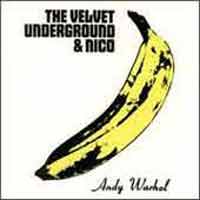
 Inselplatte
Inselplatte  #1 in Jahresliste
#1 in Jahresliste  Plattentipp
Plattentipp 















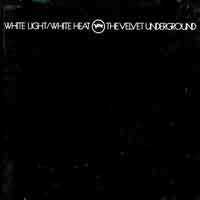
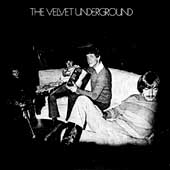

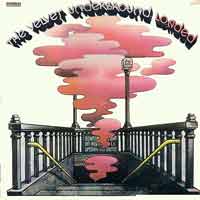
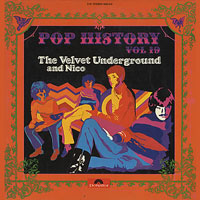
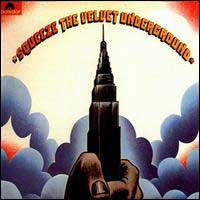
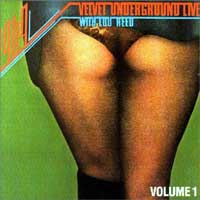
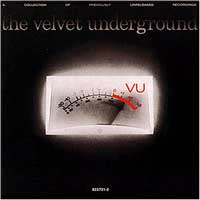
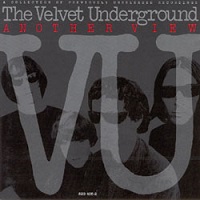
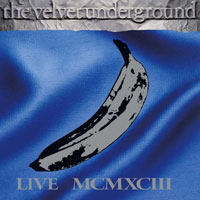




 #12 Melody Maker(2000)
#12 Melody Maker(2000)
 #13 Virgin/Colin Larkin(2000)
#13 Virgin/Colin Larkin(2000)




 #2 Scaruffi
#2 Scaruffi

 #14 Rock Critics Choice(1978)
#14 Rock Critics Choice(1978)
 #5 Sounds(2009)
#5 Sounds(2009)
 eins von 1001 Alben, die Ihr hören solltet, bevor das Leben vorbei ist! (2008)
eins von 1001 Alben, die Ihr hören solltet, bevor das Leben vorbei ist! (2008) eins von 100 Insel-Alben von Günter Ramsauer (1961-2002)
eins von 100 Insel-Alben von Günter Ramsauer (1961-2002) eins von 100 Alben aus der Basis-Diskothek Rock und Pop von Uwe Schütte (Reclam, 2011)
eins von 100 Alben aus der Basis-Diskothek Rock und Pop von Uwe Schütte (Reclam, 2011)  Velvet Underground
Velvet Underground 